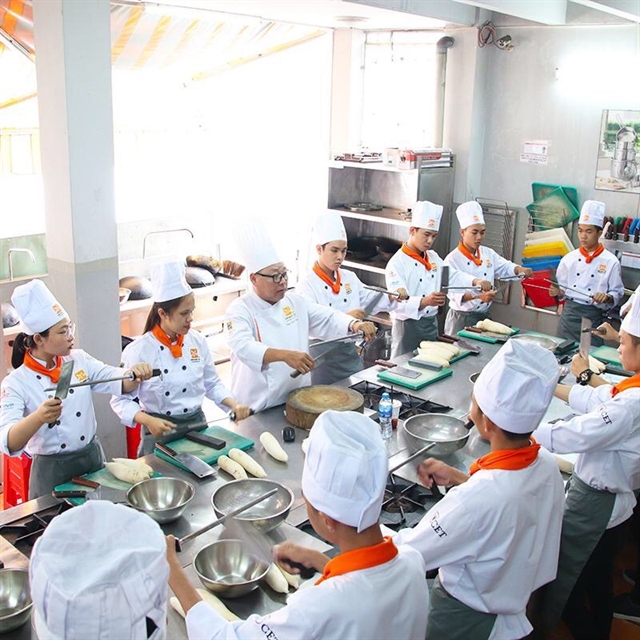 Society
Society


|
| A professional chef teaches cooking techniques at Á Âu Vocational School in HCM City. — Photo courtesy of Á Âu Vocational School |
HCM CITY — Government agency representatives and vocational training providers discussed how to apply the world’s best practices to vocational education at the Việt Nam-Australia Skills Conference on Wednesday in HCM City.
The conference is part of the Australian Skills Week in Việt Nam held from Oct 21-24 by the Australian Embassy in collaboration with Việt Nam’s Ministry of Labour, Invalids and Social Affairs.
The Australian Skills Week aims to raise the profile of vocational education and training in Việt Nam and improve its status as an aspirational career pathway.
Vocational education and training play a key role in economic development and competitiveness, said Trương Anh Dũng, deputy director-general of the Directorate of Vocational Education and Training under the Ministry of Labour, Invalids and Social Affairs.
Việt Nam has been making efforts to become a start-up nation in an attempt to boost economic growth, Dũng noted.
Bilateral education and training relations between the two countries have brought tremendous achievement with many workshops, events, ministerial visits and other activities. This year marks 25 years since Australia’s Department of Education signed the first Memorandum of Understanding with Việt Nam’s Ministry of Education and Training.
Joanna Wood, Australian Government Education Counsellor for Việt Nam and Thailand, said that students attending vocational schools gained qualifications for jobs and acquired skills needed to enter and succeed in the workplace.
Vocational education and training include many occupations and industries, including accounting, logistics, retail, tourism, hospitality, technology, and arts.
“Employers are increasingly demanding a highly skilled workforce, which means our training systems need to adapt to keep up with the pace of change," she said. "A high-quality, modern and successful vocational education and training sector is based on strong partnerships between government, industry, institutions and the community.” — VNS




